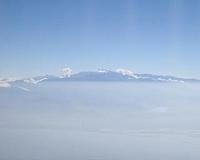| . |  |
. |
Tokyo (AFP) Oct 18, 2010 The world must act immediately to stop the rapid loss of animal and plant species that allow humans to exist, the United Nations warned on Monday at the start of a major summit on biodiversity. Delegates from the 193 members of the UN's Convention on Biological Diversity (CBD) are gathering in the central city of Nagoya to try to work out strategies to reverse a man-made mass extinction. "The time to act is now and the place to act is here," CBD executive secretary Ahmed Djoghlaf said as the meeting opened, describing the 12-day event as a "defining moment" in the history of mankind. "Business as usual is no more an option when it comes to life on Earth... we need a new approach, we need to reconnect with nature and live in harmony with nature." Delegates were told human population pressures were wiping out ecosystems such as tropical forests and coral reefs, killing off animal and plant species that form the web of life on which humanity depends. "This meeting is part of the world's efforts to address a very simple fact. We are destroying life on Earth," the UN Environment Programme's executive director Achim Steiner said in a speech at the opening ceremony. "We are destroying the very foundations that sustain life on this planet." Delegates in Nagoya plan to set a new target for 2020 for curbing species loss, and will discuss boosting medium-term financial help for poor countries to help them protect their wildlife and habitats. But similar pledges to stem biodiversity loss have not been fulfilled, and Djoghlaf said governments around the world had to acknowledge that failure. "Let's have the courage to look into the eyes of our children and admit that we have failed individually and collectively to... to substantially reduce the rate of loss of biodiversity by 2010," Djoghlaf said. "Let us look into the eyes of our children and admit that we continue to lose biodiversity at unprecedented rates." At the start of the decade, UN members pledged under the Millennium Development Goals to achieve "a significant reduction" in the rate of wildlife loss by 2010, the International Year of Biodiversity. Instead, habitat destruction has continued unabated, and some experts now warn that the planet faces its sixth mass extinction phase -- the latest since dinosaurs vanished 65 million years ago. Nearly a quarter of mammals, one third of amphibians, more than one in eight birds, and more than a fifth of plant species now face the threat of extinction, said the International Union for Conservation of Nature (IUCN). In May, a UN report warned of looming "tipping points" that could irreversibly damage ecosystems such as the Amazon rainforest, through logging and land clearance, and coral reefs through global warming and overfishing. The Earth's 6.8 billion humans are effectively living 50 percent beyond the planet's biocapacity in 2007, according to a new assessment by WWF that said by 2030 humans will effectively need the capacity of two Earths. Meanwhile, disputes between rich and poor nations that have plagued efforts to curb greenhouse gases threaten to similarly hamper biodiversity negotiations. The European Union is calling for a target of halting biodiversity loss by 2020, while many developing nations only support a weaker goal of "taking action" on the issue. There are also tensions over efforts to forge an accord on the "equitable sharing" of the benefits from natural resources -- for example a medicine derived from a jungle plant -- under a so-called Access and Benefits Sharing Protocol (ABS). Under a proposal backed by developing nations, companies would pay a "gene fee" if scientists find plants or animals that have been used by indigenous groups and have commercial use such as in the pharmaceutical industry. Brazilian Environment Minister Izabella Teixeira warned this month that "for us, it is not acceptable to go to Nagoya and not have an agreement for (the) ABS Protocol... We need a deal." Some developing countries have warned that a plan to set up an international scientific panel to assess biodiversity issues and advise policy makers could be blocked if there is no deal on the ABS protocol. burs-kh-fz-kma/txw
Share This Article With Planet Earth
Related Links Dirt, rocks and all the stuff we stand on firmly
 Earth's Highest Coastal Mountain On The Move
Earth's Highest Coastal Mountain On The MoveWashington DC (SPX) Sep 23, 2010 The rocks of Colombia's Sierra Nevada de Santa Marta-the highest coastal mountain on Earth-tell a fascinating tale: The mountain collides and then separates from former super-continents. Volcanoes are born and die. The mountain travels from Peru to northern Colombia and finally rotates in a clockwise direction to open up an entirely new geological basin. Smithsonian scientists were part of ... read more |
|
| The content herein, unless otherwise known to be public domain, are Copyright 1995-2010 - SpaceDaily. AFP and UPI Wire Stories are copyright Agence France-Presse and United Press International. ESA Portal Reports are copyright European Space Agency. All NASA sourced material is public domain. Additional copyrights may apply in whole or part to other bona fide parties. Advertising does not imply endorsement,agreement or approval of any opinions, statements or information provided by SpaceDaily on any Web page published or hosted by SpaceDaily. Privacy Statement |